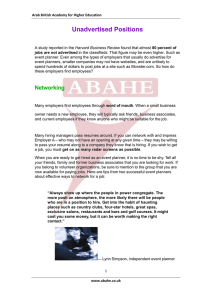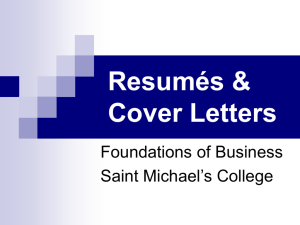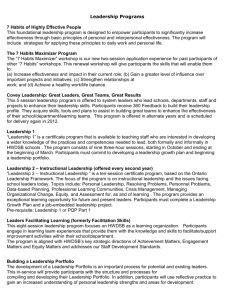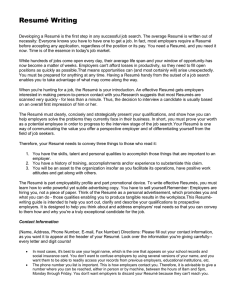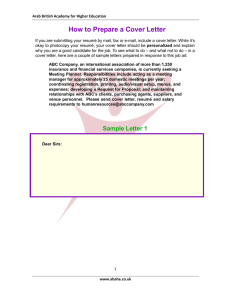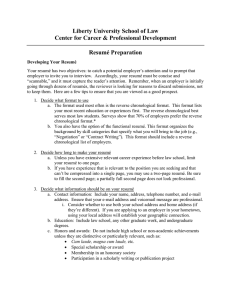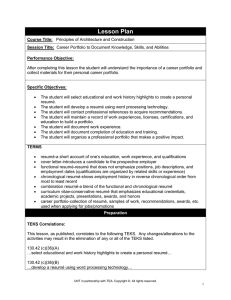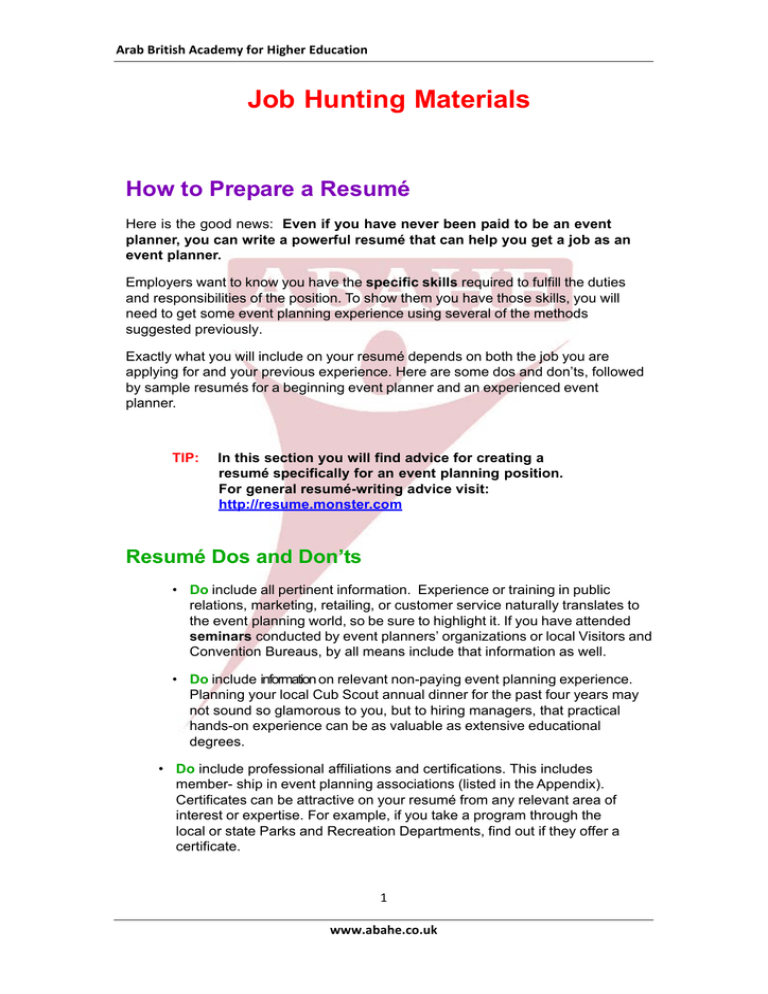
Arab British Academy for Higher Education Job Hunting Materials
How to Prepare a Resumé
Here is the good news: Even if you have never been paid to be an event
planner, you can write a powerful resumé that can help you get a job as an
event planner.
Employers want to know you have the specific skills required to fulfill the duties
and responsibilities of the position. To show them you have those skills, you will
need to get some event planning experience using several of the methods
suggested previously.
Exactly what you will include on your resumé depends on both the job you are
applying for and your previous experience. Here are some dos and don’ts, followed
by sample resumés for a beginning event planner and an experienced event
planner.
TIP:
In this section you will find advice for creating a
resumé specifically for an event planning position.
For general resumé-writing advice visit:
http://resume.monster.com
Resumé Dos and Don’ts
• Do include all pertinent information. Experience or training in public
relations, marketing, retailing, or customer service naturally translates to
the event planning world, so be sure to highlight it. If you have attended
seminars conducted by event planners’ organizations or local Visitors and
Convention Bureaus, by all means include that information as well.
• Do include information on relevant non-paying event planning experience.
Planning your local Cub Scout annual dinner for the past four years may
not sound so glamorous to you, but to hiring managers, that practical
hands-on experience can be as valuable as extensive educational
degrees.
• Do include professional affiliations and certifications. This includes
member- ship in event planning associations (listed in the Appendix).
Certificates can be attractive on your resumé from any relevant area of
interest or expertise. For example, if you take a program through the
local or state Parks and Recreation Departments, find out if they offer a
certificate.
1 www.abahe.co.uk Arab British Academy for Higher Education • Don’t include extraneous information. Some employers make a decision
about a resumé within seconds, so a resumé containing too much irrelevant
information could be rejected before the employer has even finished reading
it. Mentioning personal information such as marital status, number of
children, or hobbies you enjoy in your spare time mark you as a novice.
• Don’t go back further than 10 years on your resumé unless you have
some- thing truly exceptional. Some employers judge anything you
learned or did more than a decade ago to be outdated.
• Do ask someone (preferably in the event planning industry) to review
your resumé before you begin your search.
• Do choose an attractive paper stock, lay it out nicely, and make sure
there are no typos. You are applying for a job where appearance
matters.
• Don’t get too fancy with your resumé. One employer told us she
received a resumé packed in confetti; another said she thought she was
receiving an expensive (and free) designer scarf when it happened to be
a resumé instead. Wendy Spivak adds “Don’t send me chocolate with
your resumé.”
• Don’t stretch the truth. If you indeed orchestrated the entire annual dinner
dance for 5,000 people while working for XYZ Corporation, then say so.
But, if you actually only negotiated the contracts for the food vendors for
that event, say that. That experience is valuable in itself and stands out as
a useful, transferable skill to prospective employers. Always assume that
the person in charge of hiring will check all information on your resumé.
All Rights Reserved © Arab British Academy for Higher Education 2 www.abahe.co.uk

